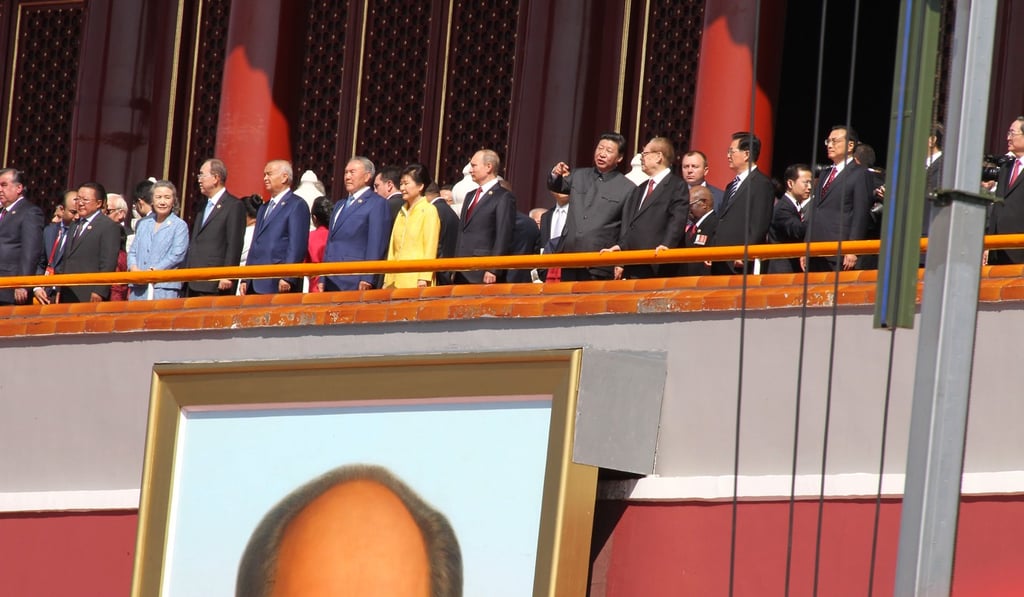China Briefing | China’s praise for Xi Jinping on National Day will say much about his power
- Xi already stands out among post-Mao leaders for getting a second chance to stand atop the Tiananmen rostrum
- Will he be glorified in terms once reserved for the country’s founder?

Beijing’s autumn is already the best of the four seasons but the weather will be even better in the coming days as the authorities have started to shut down polluting factories in the surrounding provinces.
Red lanterns and celebratory red banners are festooned along the busy downtown streets and hundreds of thousands of volunteers wearing red armbands have begun to appear on the street corners of neighbourhoods to keep a watchful eye on strangers and potential troublemakers.
Office buildings, hospitals and schools along Chang’an Boulevard, through which the parade will pass, will soon be locked down for security purposes, with occupants given extra days off, adding to what is already a seven-day National Day holiday.

Travellers into the city by air or over land will face tighter security checks and the already-tightly-policed information superhighway is under even closer scrutiny, so much so that Hu Xijin, the editor in chief of the nationalistic and strident Global Times newspaper, complained on Wednesday on Weibo, the Chinese equivalent of Twitter, that it was extremely difficult even for his staff to log on to overseas websites, and that restrictions were overdone.
He begged online censors to leave some more “cracks” between the Chinese society and overseas sites to show “the country is not fragile”. But his plea is likely to fall on deaf ears. These heavy-handed measures are standard fare for local residents whenever major events are held.
